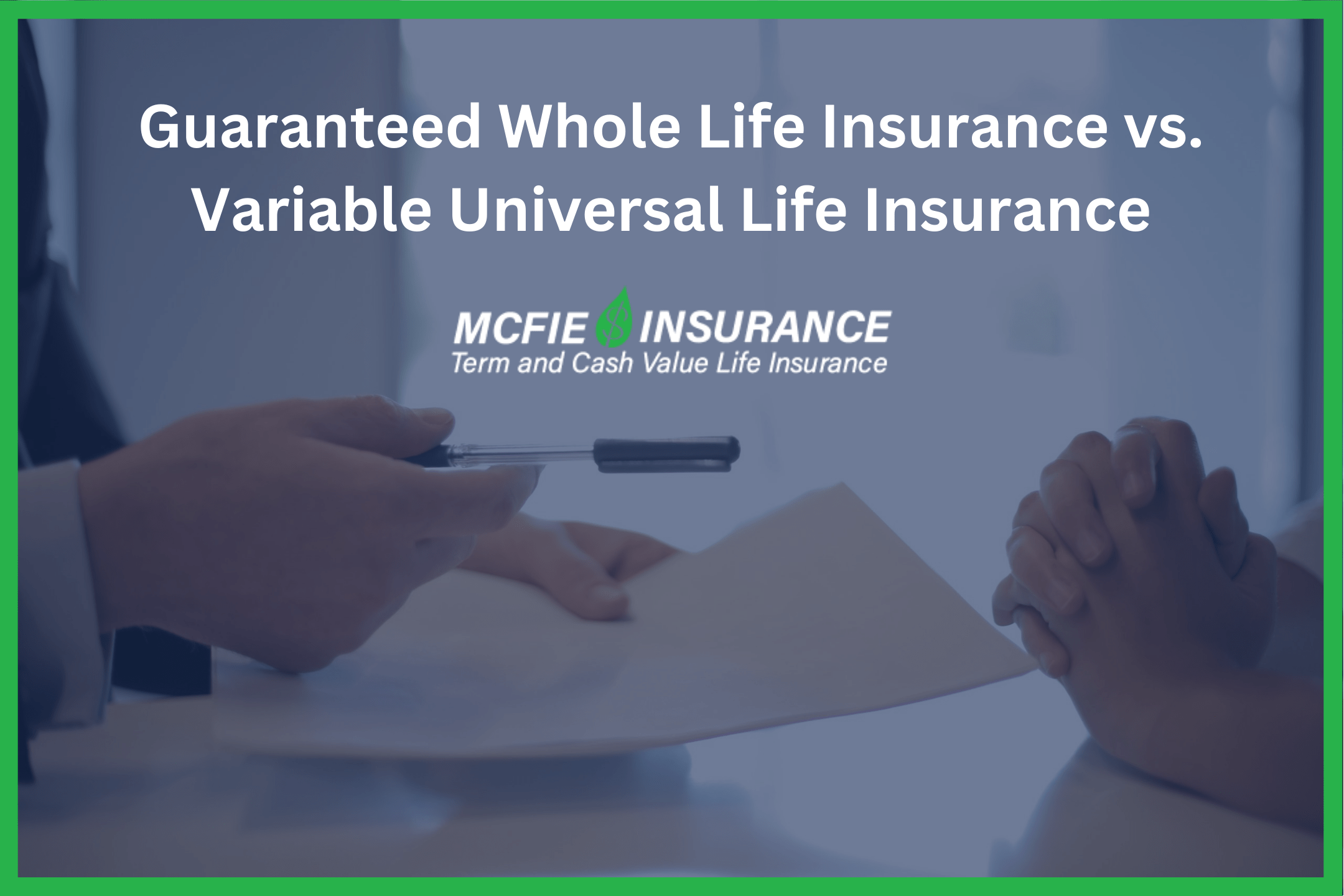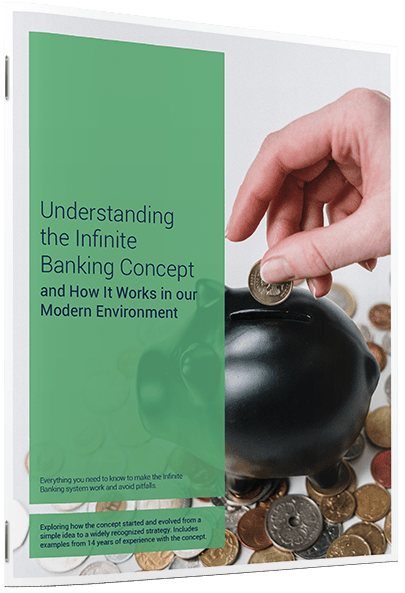317-912-1000
317-912-1000

The most significant difference between whole life insurance and variable universal life insurance is:
This means when lower than projected returns are earned on invested premiums, the risk of a variable universal life insurance policy lapsing is increased, even if premiums which have been paid are equal to or greater than premiums that would have been paid for a guaranteed whole life policy. This makes variable universal life insurance one of the riskiest and expensive types of life insurance to own. In fact, the SEC requires variable universal life insurance to be sold as a securities product.
Unlike whole life insurance where the insurance company assumes 100% of the responsibility for investing premiums and then guarantees the policyholder a fixed and level premium for the lifetime of the insured, variable universal life insurance contracts shift the investment and increasing premium risk to the policyholder. Resultant cash values of a variable universal life insurance policy can vary radically, depending on the rate of return – thus the name Variable Universal Life.
The fact that there are limited guarantees provided by the insurance company to deliver specific cash values by specific dates in the contract of a variable universal life insurance policy, means the fluctuating cash values can become such an inherent risk to the policyholder, that they are forced either to, a) increase premium payments when cash values decline, or b) suffer a financial loss of 100% of premiums paid with the lapse of the policy.
Variable universal life insurance (VUL) is very similar to indexed universal life insurance (IUL). The difference between the two types of life insurance is this: IUL earns an index-based crediting rate on the “extra” premiums paid for the policy as well as any cash value growth which has accumulated due to this crediting rate. VUL, on the other hand, allows the policyholder to select variable accounts with the insurance company for investing the extra premium paid as well as any growth which has accumulated through the investments. Variable account returns are generated by investing directly in stocks, bonds, mutual funds, etc.
Guaranteed whole life insurance contracts accumulate cash value, but the cash value in whole life is not from extra premium payments or rates of return earned on cash value accumulations. The guaranteed cash values in whole life insurance become the policyholder’s equity in the contract. The value of this cash value accumulation is directly related to how much paid-up insurance the policy has generated.
 |
Get a working knowledge of how each type of life insurance policy works. After reading this 10-page booklet you'll know more about life insurance than most insurance agents. Download here> |
With VUL and IUL contracts, paying extra premiums into the policy doesn’t purchase paid up insurance. Extra premiums can be used to increase cash accumulation but may also be used to pay for the increasing cost of insurance and to pay premium fees incurred at that time or in the future. Extra premiums paid which do end up as cash accumulation are subject to the crediting rate being earned in IUL contracts or the market return in the various separate accounts when those extra premiums are paid towards a VUL contract.
As the purpose of owning life insurance is to allow the insurance company to assume the financial risks associated with the future, it makes little sense to negate that guarantee by purchasing VUL or IUL contracts as both of these contracts shift future financial risks back onto the policyholder’s shoulders.

Understanding the Infinite Banking Concept and How It Works In Our Modern Environment 31-page eBook from McFie Insurance Order here>
One of the major advantages of guaranteed whole life insurance is that it not only offers stability and long-term value — it can also be used as a powerful financial tool. This is made possible through a strategy known as the Infinite Banking Concept.
With the Infinite Banking Concept, you can borrow against the cash value of your participating whole life policy to finance major expenses, invest in opportunities, or manage emergencies — all while your money continues to grow within the policy. Unlike VUL or IUL policies, where cash values are subject to market risk or crediting rate changes, whole life policies designed for Infinite Banking emphasize early liquidity and consistent growth.
This is possible because the policy’s structure focuses on building paid-up additions, accelerating cash value accumulation in the early years. The result? You gain access to capital — without interrupting the compounding process — and without relying on traditional lenders.
We specialize in helping clients design and implement whole life policies optimized for this exact purpose. It’s not just about having coverage — it’s about understanding how to use your policy strategically over a lifetime.
If you’re curious about how this works, download our free eBook, Understanding the Infinite Banking Concept and How It Works in Our Modern Environment. You’ll find straightforward explanations and real-life examples of how whole life insurance can do far more than just provide a death benefit.
You can also schedule a free strategy session with our team to learn how to tailor a whole life policy to your specific financial goals — and avoid the risks that come with policies like VUL or IUL.
Combining investments with life insurance is best left to the insurance companies who, with their billion-dollar portfolios, have a strong history of profitability year after year for well over 100 years and are willing and capable of sharing those profits with their policyholders in the form of non-guaranteed dividends. Dividends, of course, are only paid to policyholders who own participating whole life contracts. VUL and IUL policyholders, never earn dividends, as they are not participating owners of the life insurance company but are really leasing their insurance coverage.
The major difference between whole life and variable universal life insurance is:
The only possible advantage of paying extra premiums into a VUL policy is if the variable accounts have growth that outperforms the ever-increasing cost of insurance in the policy. This could create an increased cash value accumulation as well as an increased death benefit. Similar to other permanent life insurance products, cash values can be borrowed with no tax consequence and used to offset the cost of financing. Cash values beyond premiums paid may be taxable if withdrawn.
As with all life insurance, the death benefits from whole life, VUL or IUL, are most often not taxable. However, the way a policy is funded can dramatically alter the taxability of the cash values and death benefits. It is important that you fully understand the tax ramifications of any life insurance policy prior to signing the contract.
 Tomas P. McFie DC PhD
Tomas P. McFie DC PhD
Tom McFie is the founder of McFie Insurance and co-host of the WealthTalks podcast which helps people keep more of the money they make, so they can have financial peace of mind. He has reviewed 1000s of whole life insurance policies and has practiced the Infinite Banking Concept for nearly 20 years, making him one of the foremost experts on achieving financial peace of mind. His latest book, A Biblical Guide to Personal Finance, can be purchased here.